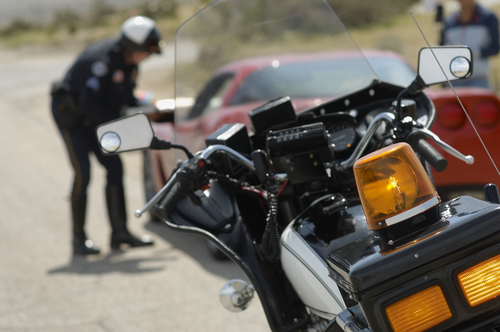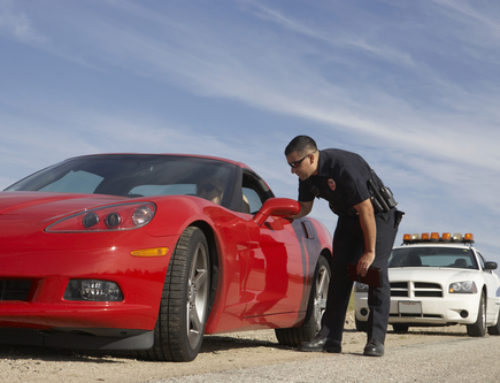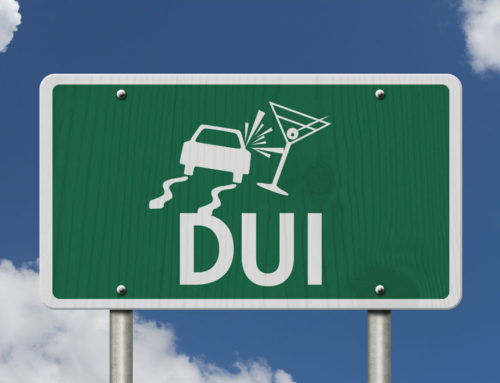Many people may have seen Law and Order and some of the other criminal procedural dramas that have been all the rage on television in the past several decades. An issue that comes up from time to time on episodes of these crime dramas or similar movies is when police pull someone over for speeding, ask to search the motorist’s car, and then find some evidence of wrongdoing; the motorist is left stuttering and trying to explain to police why what they found isn’t what it appears to be.
However, what these shows many times do not explain (or do not show) is the portion of the exchange between the motorist and the police officer when the police officer actually asks for and obtains consent from the motorist to search his or her vehicle. This is a necessary first step before a police officer is allowed to search a motorist’s vehicle under Florida law except in very limited circumstances. However, if you have been pulled over by the police in Florida and they request to search your vehicle, you should never consent to such a search even if you believe you have nothing to hide. You have no idea what police may find during a search, and the ultimate result could be much worse criminal charges than a speeding ticket, so the risks are much higher than whatever perceived benefits consenting to such a search may bring with it.
Except Under Very Limited Circumstances, Police Need Your Consent to Search Your Vehicle If They Do Not Have a Valid Search Warrant
If a police officer pulls you over on the side of the road and, after asking for your license and registration, then asks to search your car, he or she is doing so because Florida law generally does not permit police to search a person’s vehicle without a valid search warrant unless the motorist expressly consents to that search. Under Florida law, a police officer can only search a car without the driver’s consent if two requirements are first met: 1) if the officer has probable cause to believe the car has evidence of a crime or some sort contraband or drugs in the vehicle; or 2) someone in the car is arrested and the search of the car is performed “incident to the arrest.” Anything that the officer finds in the course of that search can be used against the motorist in either deciding what and whether to charge the motorist with a criminal offense as well as in proving whatever offense the motorist eventually may be arrested for or charged with.
Therefore, it is against your interests to consent to a search of your vehicle if police pull you over while you are driving. Although you are permitted to withdraw your consent to search your vehicle at any time, this will not put the genie back in the bottle, so to speak. Although police are required to discontinue their search as soon as consent is withdrawn, they are free to use anything they found prior to consent being withdrawn in deciding whether to arrest someone or in conducting a further investigation into whether a crime has been committed. Anything they found up to that point can be used to arrest and/or investigate you to determine if you committed a crime.
Why Is Consenting to A Search of Your Vehicle If You Have Been Pulled Over a Bad Idea?
Simply put, you have no idea what police may be interested in when they are looking through your car and, in agreeing to a search, you are giving them carte blanche, or the ability to rummage through your vehicle without any restrictions whatsoever. They may find something you did not remember was left in there or something that may lead them to arrest you for a completely different reason than you were originally pulled over for. It is therefore in your best interests to politely decline any request by police to search your vehicle if you have been pulled over while driving.
Will It Negatively Affect Whether I am Arrested or Criminal Charges Are Filed Against Me if I Do Not Consent?
It typically will not affect you in any way if you decline to give police your consent for them to search your vehicle. First, police requests to search vehicles are politely (or not so politely) declined all the time. Police are used to (and train for) situations in which motorists are hostile to them, so police are much less likely to be taken by surprise or become hostile or vindictive themselves if you politely decline a request to search your vehicle versus cursing or yelling at them like many people do. Understand that in Florida, like in most states, the police may make recommendations to prosecutors as to what charges to file against an individual. Police will investigate the factual circumstances surrounding a particular situation to determine if there is probable cause to believe a crime was committed and then arrest an individual and turn over their findings to the state attorney’s office, who makes the ultimate determination as to whether charges will be filed or not. The state prosecutor’s office will conduct their own investigation into the case and decide what specific charges to pursue against you. They will also decide the ultimate disposition of those charges, i.e. whether they intend to take the case to trial, pursue lesser charges against you if you cooperate or agree to a plea deal, or whether even to file charge based on the evidence, etc.
Contact Experienced Palm Beach County DUI Defense Attorney Bryan Raymond
If you have been arrested or are facing criminal charges in Palm Beach County, Florida because you inadvertently allowed police to search your vehicle without really understanding what you were agreeing to, you will need an aggressive criminal defense attorney who will fight the charges against you tooth and nail. Bryan M. Raymond of the Law Office of Bryan Raymond is an experienced criminal defense attorney who has represented numerous individuals who have been pulled over for one suspected offense and then unwittingly agreed to a police search that lead to an arrest or criminal charges. If you’ve been arrested for or charged with a criminal offense based on a traffic stop in Palm Beach County, contact experienced criminal defense attorney Bryan Raymond today at (561) 682-1115 or [email protected] and you can be assured of aggressive, zealous representation. .






